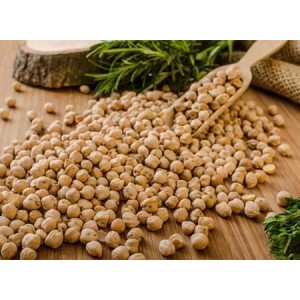Can chickpea protein help with weight loss? How about the heat?
Chickpeas have been a staple food in many cultures for centuries. They are a rich source of protein, fiber, vitamins, and minerals. In recent years, the popularity of chickpea protein as a dietary supplement has grown, and many people are wondering if it can help with weight loss.
Chickpea protein 80% powder is a high-quality protein that contains all the essential amino acids required by the human body. It is also low in fat and carbohydrates, making it an ideal choice for people looking to lose weight. Studies have shown that consuming protein can help increase feelings of fullness and reduce overall calorie intake, leading to weight loss.
In addition to its protein content, chickpea protein is also a good source of fiber. Fiber is essential for maintaining healthy digestion and can help regulate blood sugar levels. It can also help reduce appetite and promote feelings of fullness, making it easier to stick to a calorie-controlled diet.

The heat treatment of chickpea protein powder can also play a role in weight loss. Heat treatment can increase the digestibility of protein, making it easier for the body to absorb and utilize. This can lead to an increase in muscle mass and a reduction in body fat, which can ultimately lead to weight loss.
However, it is important to note that not all heat treatments are created equal. High-heat treatments can denature proteins, reducing their quality and potentially reducing their effectiveness for weight loss. It is important to choose a chickpea protein supplement that has been properly processed to maintain its quality and effectiveness.
In conclusion, chickpea protein can be a valuable addition to a weight loss diet. Its high-quality protein and fiber content can help reduce overall calorie intake and promote feelings of fullness. The heat treatment of chickpea protein can also play a role in weight loss, but it is important to choose a supplement that has been properly processed to maintain its quality and effectiveness.














